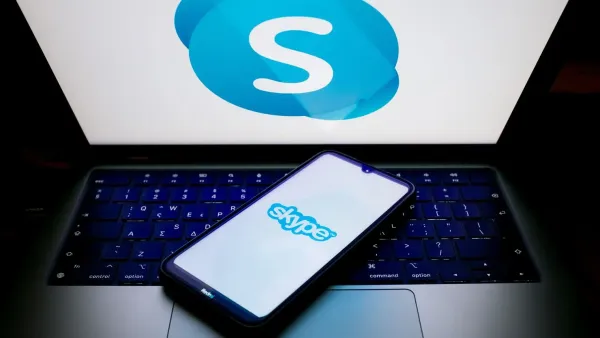
Microsoft has confirmed it will shut down its iconic video-calling platform Skype on May 5, 2025. Once a trailblazer in the world of internet communication, Skype is being retired as Microsoft pivots its focus to a unified platform — Microsoft Teams.
The decision aligns with Microsoft’s broader strategy to streamline its communication tools and strengthen the Teams ecosystem for both personal and business use.
Microsoft’s plan to shut down Skype wasn’t abrupt. The update was made public earlier this year, giving users ample time to shift to Microsoft Teams. This planned transition is aimed at reducing duplication of services and consolidating features under one platform.
Skype was launched in 2003 by Danish software developer Janus Friis and Swedish developer Niklas Zennstrom. It quickly gained global popularity, revolutionizing the way people connected over voice and video across long distances.
Despite its early success, Skype lost market share to newer, more integrated platforms such as Zoom and Microsoft Teams, leading to its gradual phase-out.
The shutdown impacts both free and paid Skype users, but Skype for Business, which had already merged with Teams, remains unaffected.
Key points for users:
Microsoft will no longer offer Skype Credit or new subscriptions for domestic and international calls.
Existing users can continue using their current credit and subscriptions until the end of their billing cycle.
After May 5, Skype’s general user services will no longer be accessible.
Microsoft has ensured a seamless migration process for Skype users. Users can log in to Microsoft Teams using their existing Skype IDs, and their chat history and contacts will be transferred automatically.
Teams offers many of the same core features as Skype, such as one-on-one and group video calls, messaging, and file sharing — with enhanced collaboration tools and integration capabilities.
Microsoft Teams has experienced significant growth in recent years, especially during the pandemic. Its wide adoption by businesses, schools, and individuals has positioned it as the preferred communication platform within the Microsoft ecosystem.
With Teams encompassing Skype’s functionality and offering additional tools such as file collaboration, real-time document editing, and third-party app integration, Microsoft decided that maintaining both platforms was unnecessary.
TikTok fined €530 million by EU for breaching data protection laws: Here’s what happened